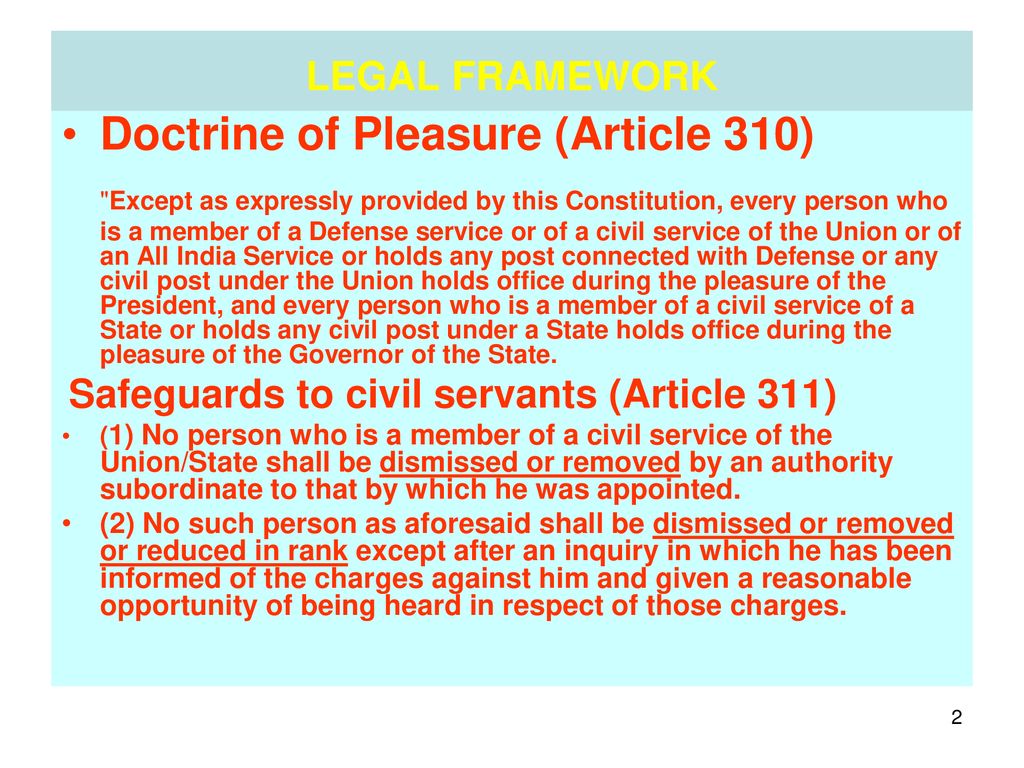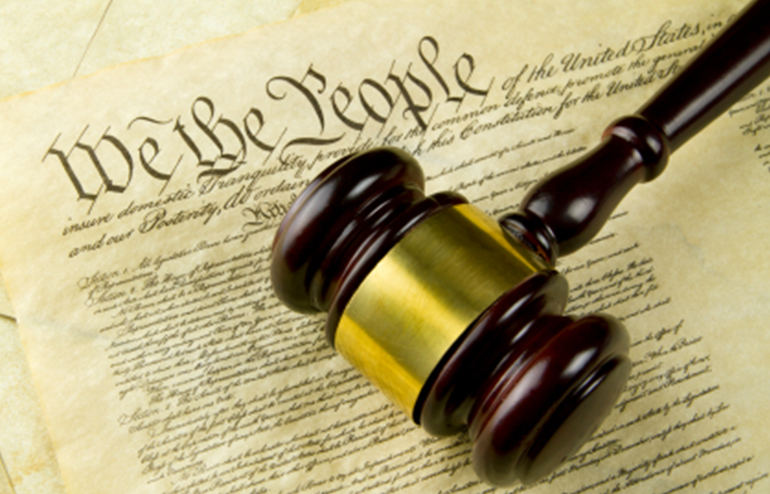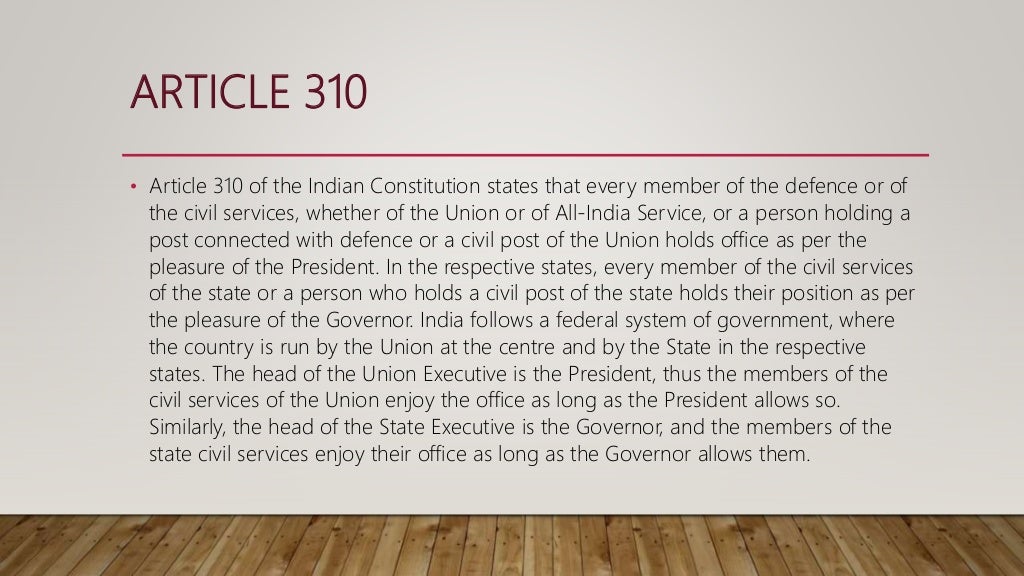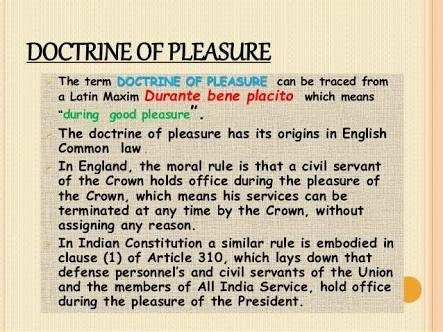The Kerala governor and state administration disagree on many matters. The newest scandal arose after he asked numerous vice-chancellors to quit after a Supreme Court ruling overturned a university VC’s nomination. As a result of comments made by State Finance Minister K. N. Balagopal, the Governor, has also demanded his resignation from his Cabinet, claiming he no longer wants him in the Council of Ministers.

What is Doctrine of Pleasure under Indian Constitution
The Doctrine of Pleasure was developed in the United Kingdom. The British monarchy enjoys unique powers under the Doctrine of Pleasure. A subordinate of the British monarchy serves at the monarch’s pleasure and is subject to dismissal at any time. A public servant’s employment can be ended at any time, with or without cause. The Crown is not obligated by any specific contract that may exist between the relevant government officer and the Crown. Employees in the public sector are subject to termination with or without cause and are barred from suing for wrongful termination or premature termination of employment.
The provision is justified on the grounds that the crown should not be obligated to retain someone whose performance is deemed unsatisfactory. Therefore, Public Policy underpins this common law doctrine in England. Retiring a public official whose continued service is not or is counter to the public interest is a matter of public policy.Like its origins in the common law of England, India’s Doctrine of Pleasure is grounded in policy considerations. While the philosophy of pleasure has gained some traction in India, much like it did in England, it has yet to gain widespread acceptance in India. In India, Article 310 codifies this “doctrine of pleasure”.
 Source: CL Blogs
Source: CL Blogs
Except as otherwise provided in this Constitution, a person serving in the armed forces, in the civil service of the Union or of all India, or in any post connected with defence or any civil post under the Union shall hold that position during the pleasure of the President, while a person serving in the civil service of a State or in any civil post under a State shall hold that position during the pleasure of the Governor of the State. “unless as expressly allowed by the Constitution,” this is the general rule that applies. Consequently, the Doctrine is restricted by the Constitution. Therefore, the pleasure theory does not apply to a servant when Article 310 of the Constitution provides for a tenure other than that offered to the servant.
When it comes to the Indian constitution, how does the Doctrine of Pleasure play out in practise?
Article 310 of the Indian Constitution states that all government officials, including those in the military and the civil service, serve at the President’s pleasure. In the same vein, all State employees serve at the Governor’s pleasure.
 Source: Slide Share
Source: Slide Share
But there are limits on firing a public official under Article 311. Those who work for the government will have a fair chance to defend themselves if they face disciplinary action. In addition, if conducting an investigation would be impractical or counterproductive to protecting national security, the inquiry can be waived. The President’s pleasure here refers to the Union government, while the Governor’s pleasure refers to the State administration.
Is the governor entitled to exercise Doctrine of Pleasure under Indian Constitution
The Governor appoints the Chief Minister and the other Ministers based on the CM’s advice (Article 164). It further specifies that ministers serve at the Governor’s pleasure. Because they are chosen purely on the advice of the CM, the term “pleasure” is often understood to refer to the CM’s authority to fire a minister, not the Governor’s. As a response, the Governor, in his role as Chancellor, ordered the Vice Chancellors of nine universities to resign the next day. He said the Supreme Court’s findings of constitutional flaws in one case also rendered their appointments null and void in the other cases.
Analysis of India’s “Doctrine of Pleasure” from a Judicial Standpoint
The Supreme Court of India refused to follow the Doctrine of pleasure in State of Bihar v. Abdul Majid. Sub-inspector of police was fired for cowardice but then reinstated. The government disputed his demand for severance pay. The Supreme Court upheld his claim for salary arrears based on contract or quantum meruit, or service value.
 Source: Quora
Source: Quora
In Om Prakash v. State of Uttar Pradesh, the Supreme Court ruled that a government servant whose dismissal was proved to be unconstitutional was entitled to his wage from the date of dismissal until the date it was deemed unlawful. In Jaswant Singh v. State of Punjab, the Supreme Court ruled that Article 311(3)‘s finality “may be examined in court and interfered with if the conduct is proven to be arbitrary, malafide, driven by extraneous factors, or merely a pretext to dispense with the investigation.” The Supreme Court ruled in Union of India v. Balbir Singh that it can assess the president’s or governor’s pleasure. If the court decides that the circumstances have no influence on state security, it can rule that the president’s or governor’s satisfaction, essential for enacting such an order, was tainted by irrelevant factors.
In Union of India v. Tulsiram Patel, the Supreme Court ruled that the “pleasure doctrine” was not a feudal legacy nor a Crown prerogative, but public policy. Ministers set policies, while the Legislature enacts laws to implement them and achieve their goals. The civil service must implement these policies and laws efficiently and effectively. The public cares about the efficiency and integrity of these services.













